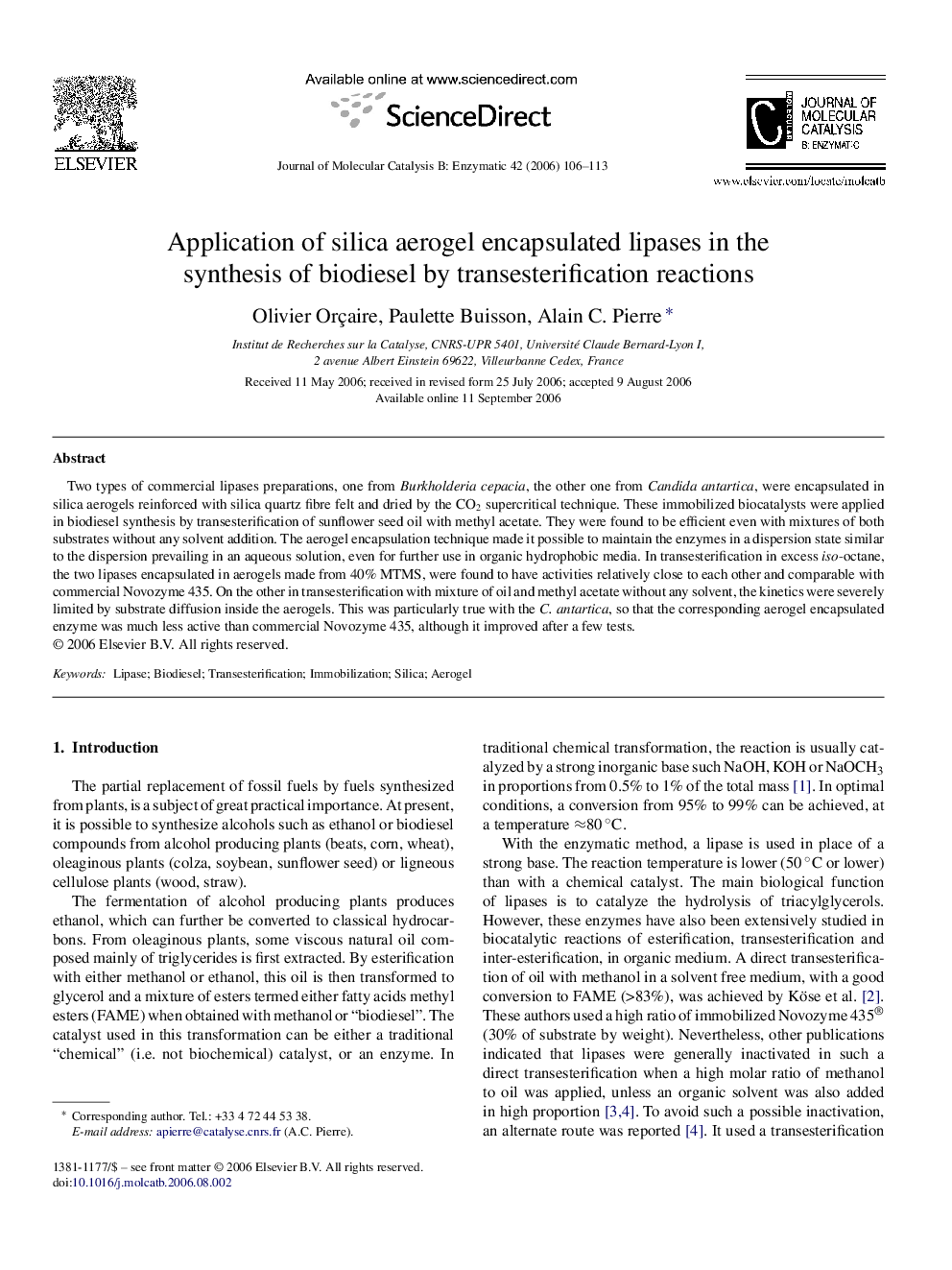| Article ID | Journal | Published Year | Pages | File Type |
|---|---|---|---|---|
| 71197 | Journal of Molecular Catalysis B: Enzymatic | 2006 | 8 Pages |
Two types of commercial lipases preparations, one from Burkholderia cepacia, the other one from Candida antartica, were encapsulated in silica aerogels reinforced with silica quartz fibre felt and dried by the CO2 supercritical technique. These immobilized biocatalysts were applied in biodiesel synthesis by transesterification of sunflower seed oil with methyl acetate. They were found to be efficient even with mixtures of both substrates without any solvent addition. The aerogel encapsulation technique made it possible to maintain the enzymes in a dispersion state similar to the dispersion prevailing in an aqueous solution, even for further use in organic hydrophobic media. In transesterification in excess iso-octane, the two lipases encapsulated in aerogels made from 40% MTMS, were found to have activities relatively close to each other and comparable with commercial Novozyme 435. On the other in transesterification with mixture of oil and methyl acetate without any solvent, the kinetics were severely limited by substrate diffusion inside the aerogels. This was particularly true with the C. antartica, so that the corresponding aerogel encapsulated enzyme was much less active than commercial Novozyme 435, although it improved after a few tests.
